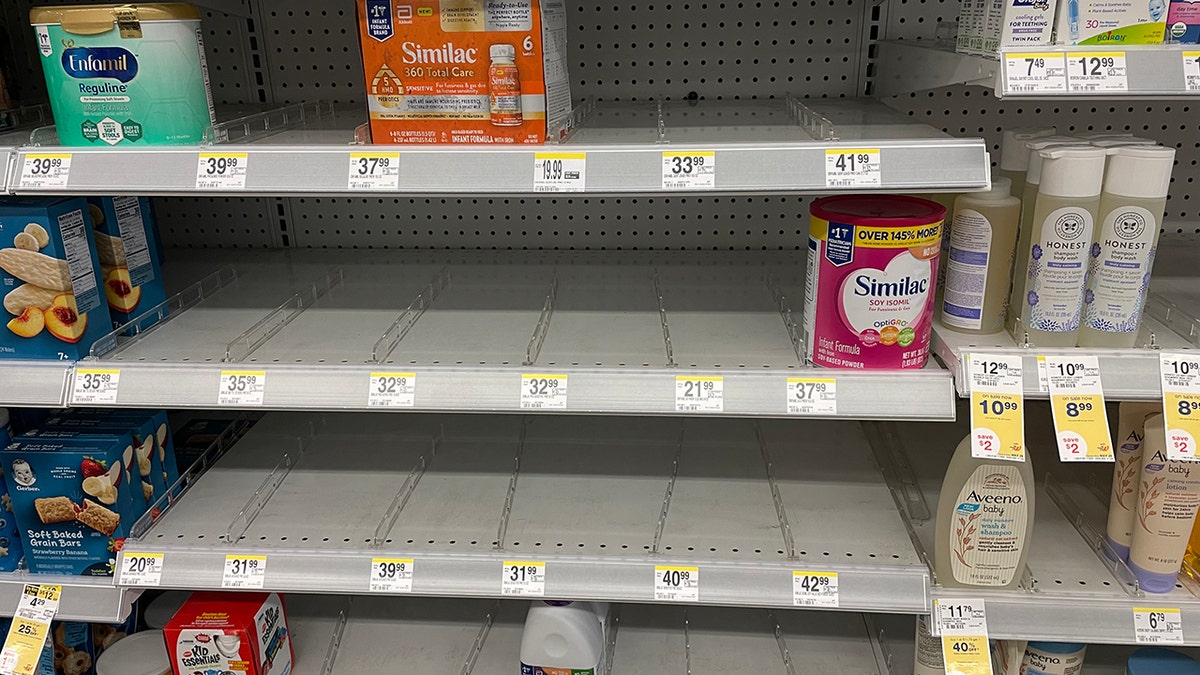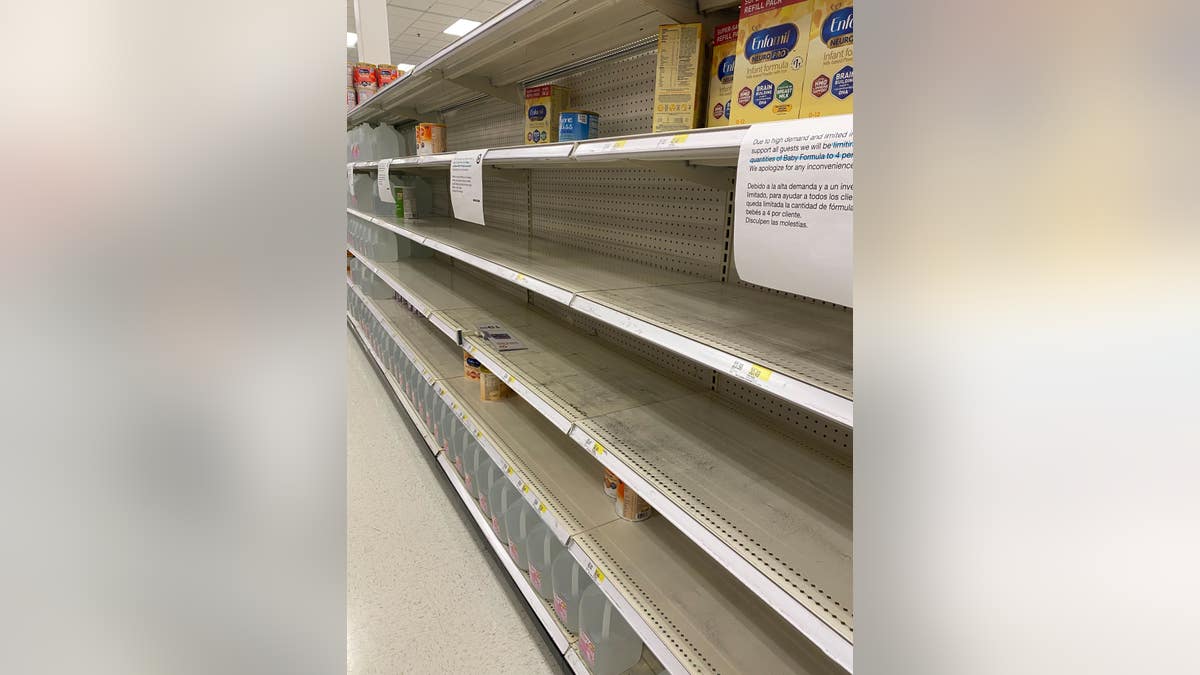White House handling of baby formula shortage signals 'incompetence' or 'lack of oversight': Sen. Cassidy
Sen. Bill Cassidy, R-La., joined 'America's Newsroom' to discuss parental panic over the nationwide baby formula shortage and his concerns surrounding the economy and energy policy.
As a mother, my heart goes out to the millions of families affected by the current shortage of baby formula. I can only imagine what would have gone through my mind had I not been able to obtain the proper nutrition for my two daughters in their infancy.
Hard-working American families deserve better than this.
The formula shortage brings to mind the famous quote from Ronald Reagan’s first inaugural address: "In this present crisis, government is not the solution to our problem—government is the problem."
A series of poor decisions by federal policy-makers helped to create the shortages plaguing supermarket shelves, and some of the proposed "solutions" could end up making the problem worse.

Store shelves are empty after a baby formula shortage. (Fox News Digital)
Much of the problem began with the federal Women, Infants, and Children (WIC) program, which funds over half of the baby formula purchased nationwide. States competitively bid out their WIC contracts for formula, but those bids rely upon sole-source contracts. As a result, families receiving WIC assistance can only purchase one brand of formula, from their state’s "approved" provider.
BABY FORMULA SHORTAGE: BIDEN CELEBRATES AS 78,000 POUNDS OF BABY FORMULA FLOWN TO US
The contracting process means that, in many states, the "approved" provider ends up with a near-monopoly on the formula market—not only do WIC families purchase from their state’s contracted brand, but retailers give this brand greater prominence and preference, meaning most non-WIC families buy that brand too. Ironically, a Biden administration that has spent much time talking about the need to promote competition has said precious little about how this government program actually stifles a robust marketplace for formula.
Washington also harms competition by impeding the import of safe infant formula produced overseas. The combination of tariffs, which raise the price of imported formula, and regulatory prohibitions on trade have kept the American market largely closed to foreign manufacturers.
Policies like trade quotas and unnecessary labeling requirements imposed by the Food and Drug Administration (FDA) have only increased the power of the de facto cartel that controls the American baby formula market.
CLICK HERE TO GET THE OPINION NEWSLETTER
Much of the "solution" to this problem relies less on Washington micro-management than on sheer common sense. It shouldn’t require the federal government commandeering Pentagon aircraft to fly baby formula from Europe to the United States—formula manufacturers and retailers should have the power to do that on their own.

Signs at a local Target inform shoppers that they are limited to 4 containers each due to the shortage in baby formula. (Fox News Digital)
Meanwhile, a group of senators proposed legislation that would require formula suppliers to notify the FDA of potential shortages. The bill pre-supposes that, in the event of another possible shortage, federal bureaucrats can engineer another big-government "plan" to prevent a formula shortfall.
But this "solution" wouldn’t do anything but strangle manufacturers in additional red tape.
CLICK HERE TO GET THE FOX NEWS APP
Think about it: If enough formula exists overseas to ease the current shortage, why not alleviate the problem for good by permanently opening the United States to imports of safe formula? Moreover, why should the American people entrust the FDA—which apparently ignored problems at a formula manufacturing plant for months, leading to the present crisis—with even more authority, when it failed to do its job right this time?
Thankfully, Congress has passed legislation giving WIC recipients the flexibility to buy whatever brand of formula they can find until the current shortages ease. But after the immediate crisis passes, rather than finding reasons to engineer another Washington power grab, lawmakers should look in the mirror and examine the ways in which the government helped create this mess in the first place.











































